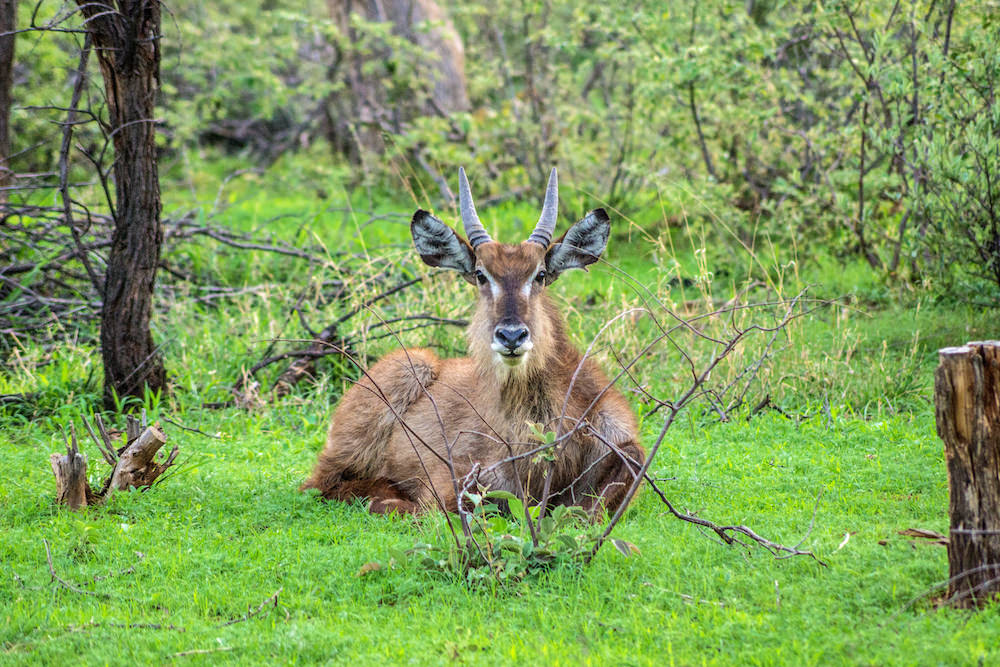Worldwide confusion exists over the waterbuck’s name. It is frequently and incorrectly used to refer to the lechwe and the sitatunga, two species that are considered aquatic in their behaviour. The waterbuck, however, is not aquatic but terrestrial and is usually found in close vicinity to water rich environments. Waterbuck have a reputation for smelly and unpalatable meat. This is due to a musky oil secreted by glands found primarily in the skin of the flanks which forms a waterproof layer around the hair and protects the skin when the waterbuck enters water. Many incidents have been reported where crocodile and lion have avoided preying on waterbuck because of their unpleasant smell.
Mabalingwe Waterbuck standing | © Photography by Marthinus Duckitt
Adult bulls are 20-25% heavier than adult cows. Old bulls tend to become smelly as a result of the secretions of the subcutaneous oil glands. With a light breeze, experienced hunters claim they can smell them up to 500 m away.
Mabalingwe Waterbuck | © Photography by Marthinus Duckitt
Waterbuck
Share this post Tweet


